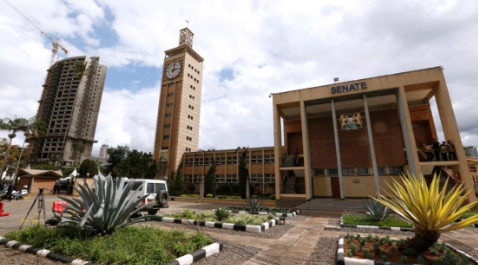The Finance Bill 2024 has been criticized as a hindrance to Kenyans and a setback to the country’s economic growth. During a briefing session organized by Deloitte Kenya to analyze the bill, speakers highlighted concerns that the proposed amendments would have significant economic and fiscal impacts.
This comes at a time when citizens are already grappling with increased taxes.
Fredrick Omondi, Tax and Legal Leader at Deloitte East Africa, expressed concerns over government measures that elevate the tax burden. He emphasized that such measures could diminish purchasing power and escalate the cost of doing business, ultimately adversely affecting both citizens and the economy as a whole.
“The frequent changes in tax policy also create more risks for businesses and make it costlier for taxpayers to comply and does not augur well for our country. Whereas the drive to grow tax revenue as a percentage of GDP is understandable, the means of achieving this should not be through overburdening existing taxpayers and businesses with additional taxes, but rather greater focus on enhancing compliance and growing the economy to improve incomes and thereby generate higher taxes,” Omondi said.
He added that there is need to relook some of the measures introduced via Finance Act 2023 that have brought about significant challenges.
Key among them include the imposition of e-TIMs as a condition for deductibility of expenses, abolition of waiver of penalties and interest, frequency of remitting withholding tax to KRA, tax burden on employee occasioned by introduction of Affordable Housing Levy at the rate of 1.5% of gross emoluments, Social Hospital Insurance Fund at the rate of 2.75% of the gross pay, new tax bands at the rate of 32.5% and 35% and increase in the National Social Security Fund (NSSF) contributions all at the same time.
During the session, Gladys Makumi, Financial Advisory Leader at Deloitte East Africa, highlighted concerns about Kenya’s reliance on debt despite the goal to reduce it. She warned that the proposed imposition of levies on essential household items, coupled with inflation-impacted salaries and wages, could lead to a decrease in private consumption.
Peter Njenga, Senior Manager at Deloitte East Africa Tax and Legal, explained that the proposal to tax alcoholic products based on their alcohol content would result in a reduction of excise duty on beverages with low alcohol content, such as beer. Conversely, there would be an increase in excise duty on spirits and wines with higher alcohol content.
“The introduction of eco levy on various office equipment, smartphones and computers will reduce affordability of these commodities, increase the cost of doing business and negatively impact the welfare of the local mwananchi,” he said.
The Finance Bill 2024 has proposed the introduction of Advance Pricing Agreements (APAs), allowing Multinational Enterprises (MNEs) to agree on transfer prices with the Kenya Revenue Authority (KRA) before transactions occur.
Deloitte East Africa Tax and Legal Partner Doris Gichuru noted that if properly implemented, the APA process would provide certainty for MNEs by enabling them to enter into binding agreements with the revenue authority, reducing tax disputes.
Published on May 9, 2024, the Finance Bill 2024 was tabled before the National Assembly on May 13, 2024. It suggests amendments to various Acts, including the Income Tax Act, the Value Added Tax Act 2013, and others.
The public has been invited to submit comments on the bill by May 28, 2024, before Parliament approves it and it becomes law in June.
Despite dissent from Kenyans, who argue that they are already overtaxed, President William Ruto maintains his stance on increasing taxes for Kenya to achieve self-reliance.



